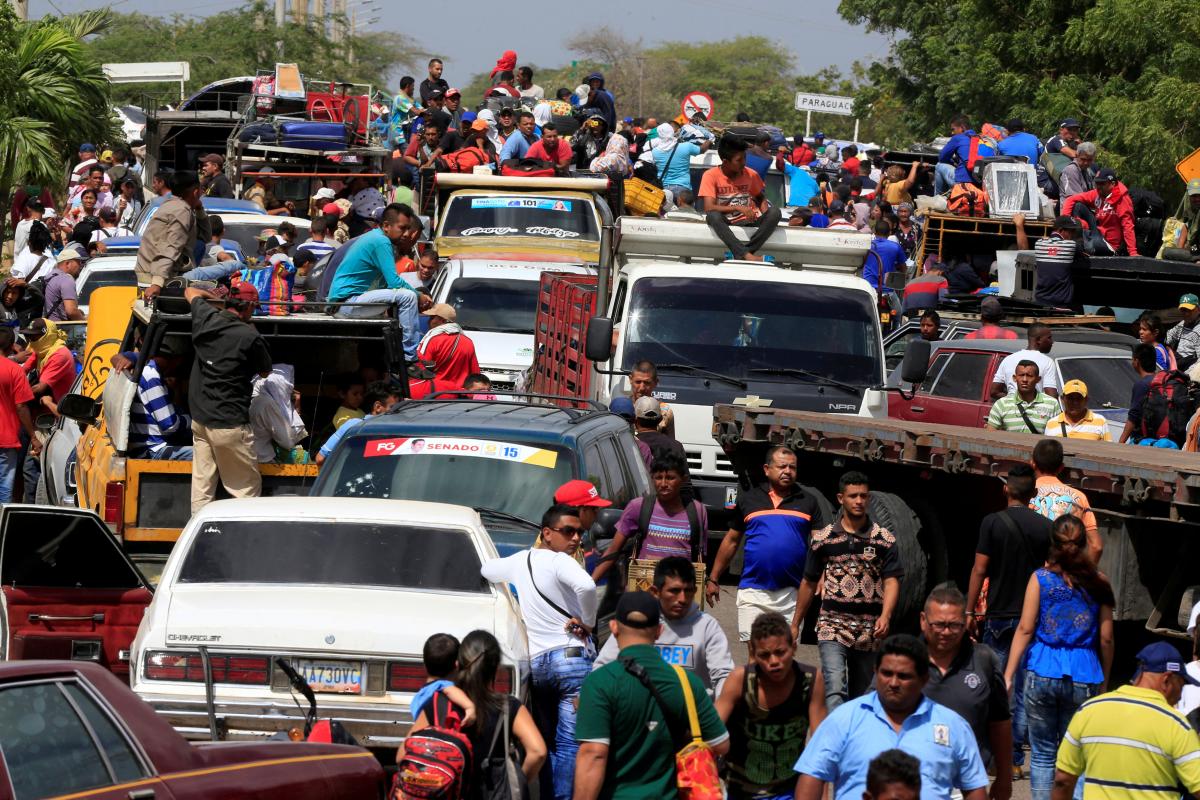GENEVA, (Reuters) – More than 800 Venezuelans stream into northern Brazil each day, the United Nations said today, citing Brazilian government statistics on people fleeing the worsening crisis in the economically crippled nation.
More than 52,000 Venezuelans have arrived in Brazil since the start of 2017, including an estimated 40,000 living in Boa Vista, capital of Roraima state, it said.
About 25,000 of the migrants are asylum seekers while 10,000 have obtained temporary resident visas and the rest are seeking to regularise their status, the U.N. High Commissioner for Refugees (UNHCR) said.
“We are stepping up our response in Brazil as the number of Venezuelan arrivals grows,” UNHCR spokesman William Spindler told a news briefing. “According to the government’s latest estimates, more than 800 Venezuelans are entering Brazil each day.”
Venezuelans have also fled to Colombia, Chile, Ecuador, Panama, Argentina and Peru, while others have sought refugee status in the United States, Spain, Mexico and Costa Rica, according to the UNHCR.
President Nicolas Maduro’s government in Caracas is faced with widespread discontent over hyperinflation and shortages of food and medicines during a fifth year of recession that he blames on Western hostility and the fall of oil prices.
Venezuelans report they are fleeing insecurity, violence and often a loss of income, Spindler said. Many are in desperate need of food, shelter and health care.
UNHCR is working with Brazilian authorities to register Venezuelans to ensure they have proper documentation that entitles them to work and access services, Spindler said.
Ten shelters have been opened in Boa Vista, each with 500 people, but some Venezuelans are living on the streets, he said.
Venezuelans willing to relocate from Roraima to other parts of Brazil are being flown to Sao Paulo and Cuiaba this week, as communities and services in Boa Vista are over-stretched, he said.

UNHCR’s $46 million appeal to help Venezuelans across the region is only 4 percent funded, Spindler said, and he called for more donations.
Within Venezuela, the economic crisis has limited people’s access to health services and medicines, World Health Organization spokesman Tarik Jasarevic said.
“WHO is working closely with the health authorities in order to fill those shortages. We are providing medicines for malaria and anti-retrovirals. We are equipping maternal hospitals with supplies that are needed for pregnant women and babies.”
Venezuela’s crisis has posed major challenges for governments in the region, who also worry that assistance to Venezuelans could increase the number of people leaving their country.
